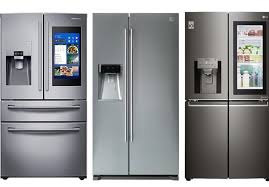
In the realm of household appliances, the refrigerator خرید یخچال فریزر stands as a paragon of utility and innovation. From its humble beginnings as an icebox to the sophisticated smart refrigerators of today, this essential appliance has undergone a remarkable transformation, revolutionizing the way we preserve and consume food. This article delves into the evolution, technological advancements, and future prospects of the refrigerator.
A Brief History of Refrigeration
The journey of refrigeration began in the 18th century with the invention of the icebox, a simple yet effective solution for keeping food cool using blocks of ice. However, the true leap in refrigeration technology came in the mid-19th century with the advent of mechanical refrigeration. Pioneers like John Gorrie and Carl von Linde developed early refrigeration systems that laid the groundwork for modern refrigerators.
By the early 20th century, household refrigerators became more common, driven by innovations in electric refrigeration and the introduction of safer refrigerants. The post-World War II era saw a significant increase in the adoption of refrigerators, transforming them from luxury items to household staples.
Technological Advancements
The modern refrigerator is a marvel of engineering, incorporating a range of technologies that enhance its efficiency, functionality, and user experience. Some of the key advancements include:
- Energy Efficiency: Modern refrigerators are designed to consume significantly less energy than their predecessors. Innovations such as inverter compressors, improved insulation, and advanced temperature control mechanisms have drastically reduced the energy footprint of these appliances.
- Smart Features: The integration of smart technology has brought a new dimension to refrigerators. Features like Wi-Fi connectivity, touch-screen interfaces, and compatibility with smart home ecosystems allow users to monitor and control their refrigerators remotely. Smart refrigerators can also offer functionalities such as inventory tracking, recipe suggestions, and automatic restocking.
- Temperature Zones: Contemporary refrigerators often come with multiple temperature zones, allowing users to customize the storage conditions for different types of food. For instance, separate compartments for fruits, vegetables, meats, and dairy products ensure optimal freshness and longevity.
- Water and Ice Dispensers: Built-in water and ice dispensers have become a standard feature in many refrigerators, providing convenience and encouraging the consumption of chilled, filtered water.
- Environmentally Friendly Refrigerants: The shift towards eco-friendly refrigerants has been a significant development in reducing the environmental impact of refrigerators. Hydrofluorocarbon (HFC)-free refrigerants such as R-600a (isobutane) are now widely used, offering lower global warming potential (GWP) and improved energy efficiency.
Future Prospects
The future of refrigeration technology is poised to be even more exciting, with ongoing research and development aimed at further enhancing efficiency, sustainability, and functionality. Key trends to watch include:
- Advanced Materials: The use of advanced materials in insulation and component design could lead to refrigerators that are even more energy-efficient and durable.
- Artificial Intelligence: AI-powered refrigerators that can learn user preferences, optimize energy consumption, and predict maintenance needs are on the horizon. These smart systems will further integrate with other smart home devices, creating a seamless user experience.
- Sustainable Design: Future refrigerators will likely incorporate more sustainable materials and manufacturing processes, aligning with global efforts to reduce carbon footprints and promote circular economies.
- Enhanced Food Preservation: Innovations in food preservation techniques, such as vacuum-sealed compartments and advanced humidity control, will help in extending the shelf life of perishable items and reducing food waste.
Conclusion
The refrigerator has come a long way from its rudimentary beginnings, evolving into a sophisticated, indispensable appliance that plays a crucial role in modern life. As technology continues to advance, the refrigerator will undoubtedly become even more efficient, intelligent, and sustainable, further solidifying its place in the heart of every home. The silent revolution of refrigeration is a testament to human ingenuity and our relentless pursuit of progress.
